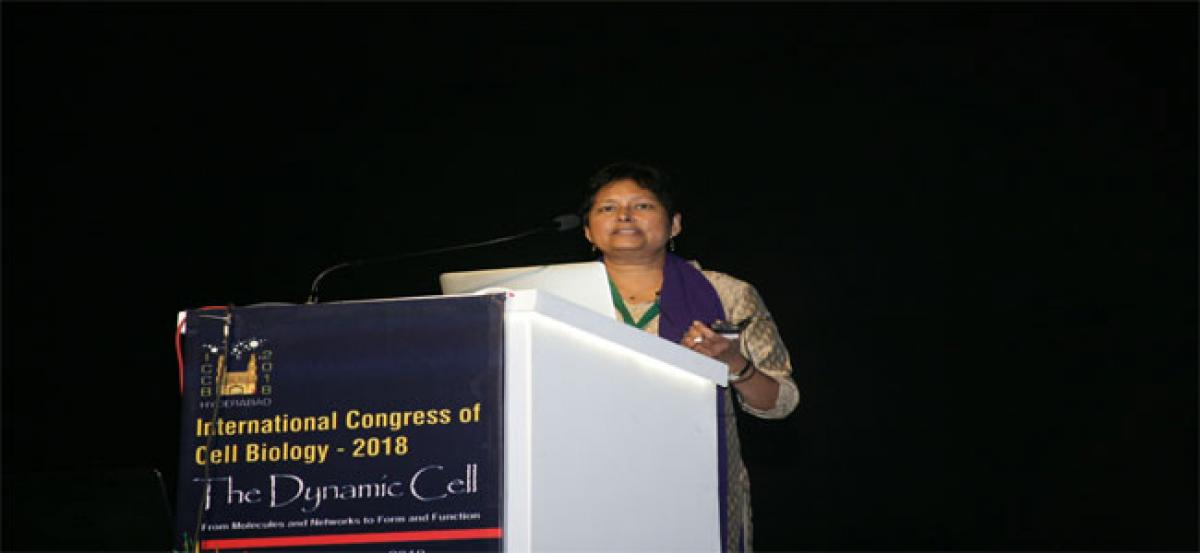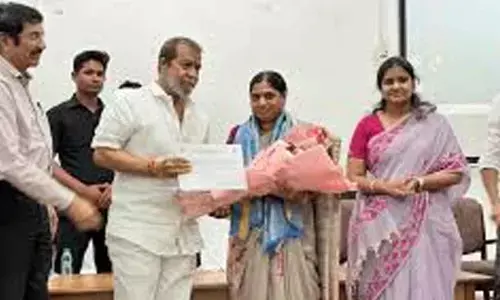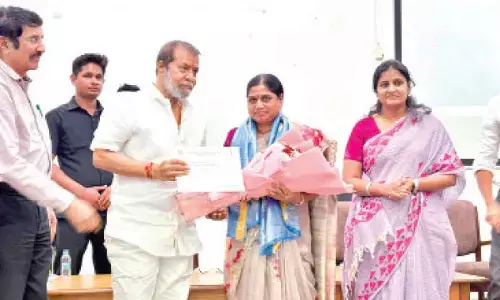ICCB-2018 ends on a grand note

More than 1100 students and researchers in cell biology from India and 30 different countries came together in Hyderabad for the International Congress for Cell Biology (ICCB 2018) – a tripartite meeting of the International Federation for Cell Biology (IFCB), the Asian Pacific Organisation for Cell Biology (APOCB) and the Indian Society of Cell Biology (ISCB) from January 27- 31.
Hyderabad: More than 1100 students and researchers in cell biology from India and 30 different countries came together in Hyderabad for the International Congress for Cell Biology (ICCB 2018) – a tripartite meeting of the International Federation for Cell Biology (IFCB), the Asian Pacific Organisation for Cell Biology (APOCB) and the Indian Society of Cell Biology (ISCB) from January 27- 31.
This meeting, the first of its kind, was organised by the CSIR - Centre for Cellular and Molecular Biology (CCMB) at the Leonia Holistic Destination, Hyderabad.
The congress brought together world class cell biologists to showcase and discuss their work, to facilitate the engagement of Indian researchers with investigators across the globe. The stunning advances in cell science showcased at the meeting will invigorate cell biology research in the country, and potentially seed novel ideas to address our current public health challenges.
As part of its outreach programme, the congress organised multiple interactive sessions between visiting scientists, school students and college teachers. Interacting with eminent researchers and listening to their personal journeys would inspire students and educate teachers about scientific research as an exciting career option, where curiosity leads to discoveries about the natural world and advances applications for human benefit.
ICCB 2018 also featured several synergy sessions including a Scientist-Clinician meet, and a panel discussion sponsored by the Andhra Pradesh Economic Development Board on “Building a Biotech Start-up: Opportunities from Cell Biology”.











